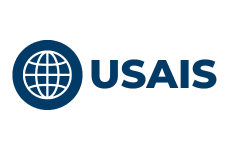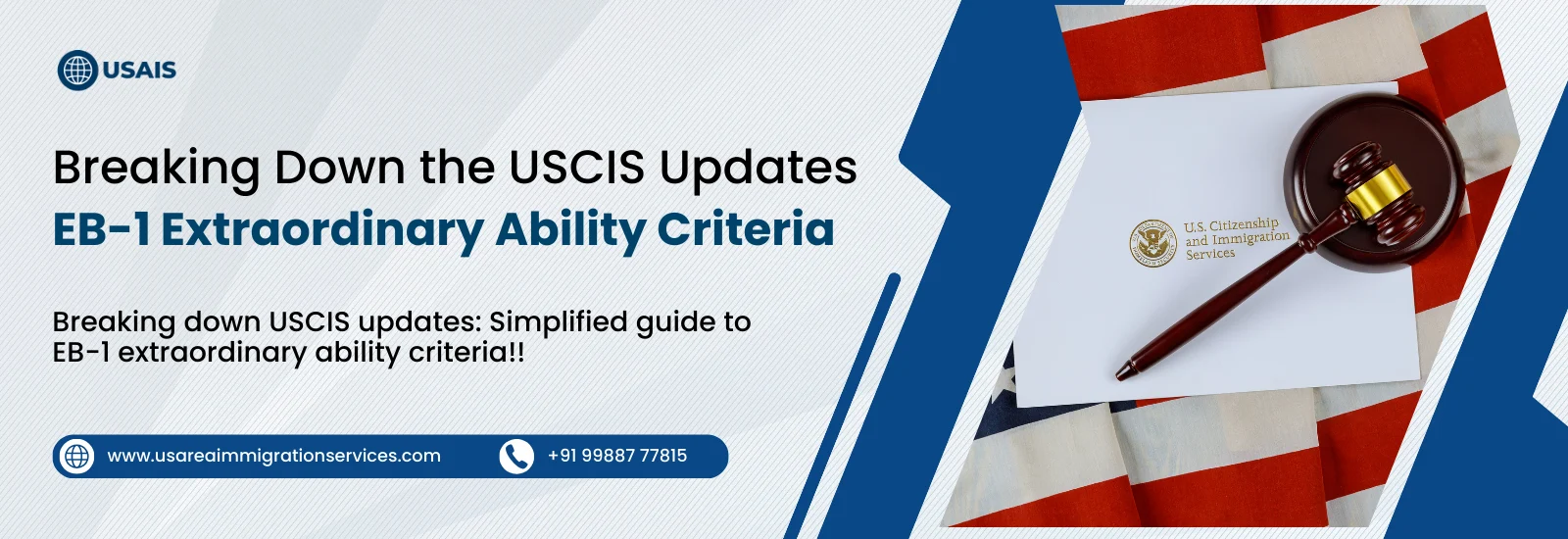While recent USCIS changes clarified the standards for EB-1 Extraordinary Ability applications for foreign workers, the agency also updated the present admissibility criteria for immigration programs. One of the most important channels has always been the EB-1 category, which has a large number of remarkable individuals. In this post, I will examine the most recent changes and explain their implications for applicants, legal professionals, and anybody else who is affected.
Understanding the EB-1 Visa and Its Importance
The EB-1 visa category is really for people with extraordinary abilities in their chosen fields. This entails anyone—artist, scientist, teacher, businessman, athlete, etc. This one is often called the ‘‘Einstein Visa’’ because it allows the employees to get around the mandatory labour certification process and therefore considerably ease their way toward getting US permanent residency.
The USCIS acknowledges that persons within this category may be very valuable to the United States economy, culture, or society. But again, demonstrating one’s qualifying for this option is not easy since the EB-1 Eligibility Criteria demand considerable substantiation.
Key Highlights of the USCIS Updates
1. Clarification on Evidence Submission
Detailed guidance has now been given by USCIS regarding the acceptability of identification evidence in establishing extraordinary ability. For example, the letters of reference are now expected to make a clear correlation between the accomplishments of the candidate and the progress or contribution to the field or the world.
2. Emphasis on Recent Achievements
The new best practices note, for example, that candidates should highlight recent activities instead of indicating old honours. Such a shift makes sense with the new goal set by USCIS to prove that the applicants are able to work to the best of their ability at the time of application.
3. Streamlined Adjudication Process
Thus, USCIS expects that new changes will help to improve the principles of the adjudication process’s transparency. Among other expectations, the petitioner believes that greater specificity of terms such as “extraordinary ability” and “sustained acclaim” would contribute to the elimination of the critical uncertainties of the application process.
Understanding the EB-1 Eligibility Criteria
This means that meeting the EB-1 eligibility criteria means showing that you have extraordinary ability through documentation. Applicants can qualify by meeting one of the following:
A. One-Time Achievement
The one-time requirement of the EB-1 visa is a major internationally recognized award like the Nobel Prize Olympic medal or Pulitzer Prize.
B. At least three of ten criteria
If an applicant does not have a single major award, they must meet at least three of the following criteria:
- Receiving lesser-known national or international prizes or awards for the foundation.
- Membership in associations that require outstanding achievements.
- Published information about the applicant in professional or significant trade journals.
- Participation as a judge for the work of others in the same or related field.
- Original contributions of major significance in the applicant’s field.
- Authoring scholarly papers for professional or big trade journals.
- Display of work in art exhibitions or showcases.
- Perform in a leadership or crucial function for prestigious organizations.
- Salary or compensation is higher than that of others in the same field.
- Commercial success in the performing arts.
To be successful, applicants not only have to tick all these boxes but also be ready to present evidence that meets the qualitative assessment as outlined in the new guidelines.
Key Changes in USCIS Guidance
Clarification of Extraordinary Ability Criteria
The new guidelines focus on providing a clearer definition of what is meant by ‘extraordinary ability’ and weeding out the ‘inherent’ part by linking ‘extraordinary ability’ with parades of achievement that confirm the person’s eminence. This helps in fostering more order in the fairly arbitrary ways that examinations and evaluations are conducted in various applications.
Evidence and Documentation Requirements
USCIS currently insists on comprehensive documentation that specifically shows an applicant’s eligibility for EB-1A. New guidance reduces the possibility of using overarching and broad concepts as evidence by insisting on specificity.
Adjustments in the Adjudication Process
The guidance put forward an initial two-part commanding procedure. First, officers evaluate whether the evidence is relevant and adequate according to the requirements of the regulation. After that, they assess if the overall weight and nature of the evidence substantiate the applicant as a person of extraordinary ability.
Focus on Sustained National or International Acclaim
One major change in thinking seems to be a relative emphasis on long-term versus short-term performance has emerged at USCIS. One has to substantiate that he or she has received acclaim in his or her field. When applying for employment today, the applicants have to present solid proof that they have been receiving acclamation all their working careers.
Conclusion
The recent changes in EB-1 extraordinary ability criteria introduced by USCIS became a reaction to the confusion that surrounds those who seek status in this particular kind of visa category. The overly restrictive standards used previously are corrected in this new guidance, showing how the process is now more in tune with current standards of accomplishment. These changes are beneficial for those who have demonstrated enormous potential for special talent; these reforms provide better guidance on how one can prove his eligibility. However, the applicants need to read through the newly applied rules and regulations and ensure detailed documentation of their cases. Being up to date and seeking advice from competent immigration attorneys can be the thin line between passing and failing under these policy changes on an EB-1 visa.
FAQs
Ques1. What is the approval rate for extraordinary ability EB-1?
Ans – The EB1A visa comes for persons of extraordinary ability in the fields of science, arts, education, business, or athletics. This EB1A visa does not need any offer of employment or an employing entity in the United States for the applicant. It is noted that qualifying for an EB1A visa is much more challenging than for other visas, and about 70% of the applications experience approval.
Ques2. What is the processing time for EB-1?
Ans – On average, processing Form I-140, which is the first step to EB-1, for the USCIS has taken 7 months to 30 days, according to its historical data. The I-140 can be processed in 15 days under premium processing.
Ques3. Who is eligible for EB-1?
Ans – EB-1 Visa Requirements. Applicants seeking the EB-1 visa must demonstrate extraordinary ability in their field, recognition for international achievements in the field of endeavor, or have worked for at least fifteen of the previous twenty-five years in a managerial or executive capacity with a foreign organization and will be entering the US to work in a similar capacity. There are three subcategories within the EB-1 visa: EB-1A, EB-1B, and EB-1C.

